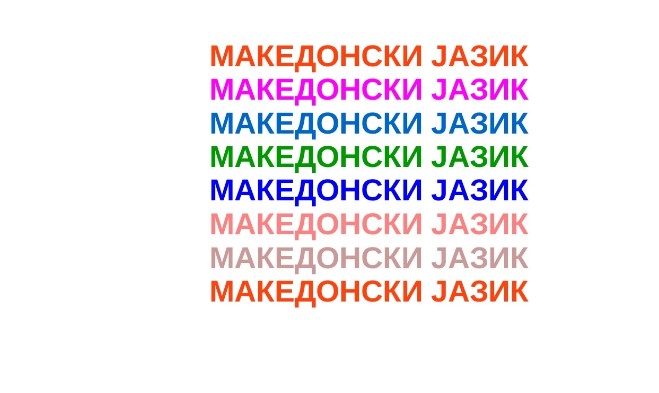After Bulgaria released the unilateral declaration on the Macedonian language, the Ministry of Foreign Affairs of the Republic of Macedonia did the same today.
Here’s the text of the Macedonian unilateral statement on the Macedonian language:
As stipulated in the Constitution of the Republic of Macedonia, the Macedonian language and its Cyrillic script is the official language of the Republic of Macedonia on the whole territory of the country and in its international relations.
The literary Macedonian language was codified in 1945. According to findings established by acts, the widely accepted theories and empirical researches of contemporary world Slavic studies and linguistic science, the Macedonian language has its own linguistic, spatial and temporal continuity. This continuity is based on the specific development of the dialects that are at its base and were spread on the territory of today’s Republic of Macedonia. The Macedonian language is defined as a Slavic language, which belongs to the South Slavic group of languages, which over the centuries grew, developed and rose into a supradialectal, national standard language of the Macedonian people.
The Macedonian language was recognized at the Third UN Conference on the Standardization of Geographical Names, held in Athens in 1977.
The Macedonian language is taught in many departments of Slavic studies and lectureships at faculties and universities throughout Europe and the world. Its long spoken and written tradition is an indisputable fact in linguistic science. Literature written in the Macedonian language has won international awards and recognition.
When concluding any contracts, agreements and documents of the Republic of Macedonia with the European Union that contain a language provision with the name of all the official languages of the EU, such as the cooperation agreement with Frontex, Macedonia expects them to be signed with the name of the Macedonian language without any explanations, additions or footnotes.
During the accession negotiations until their completion with the conclusion of the Agreement on the accession of the Republic of Macedonia to the EU and after admission to full-fledged membership in the EU, Macedonia will not accept to discuss a different solution for the Macedonian language than that stated in the Negotiating Framework. With the admission of Macedonia to full-fledged membership in the EU, the Macedonian language should become one of the official languages of the EU.





Comments are closed for this post.